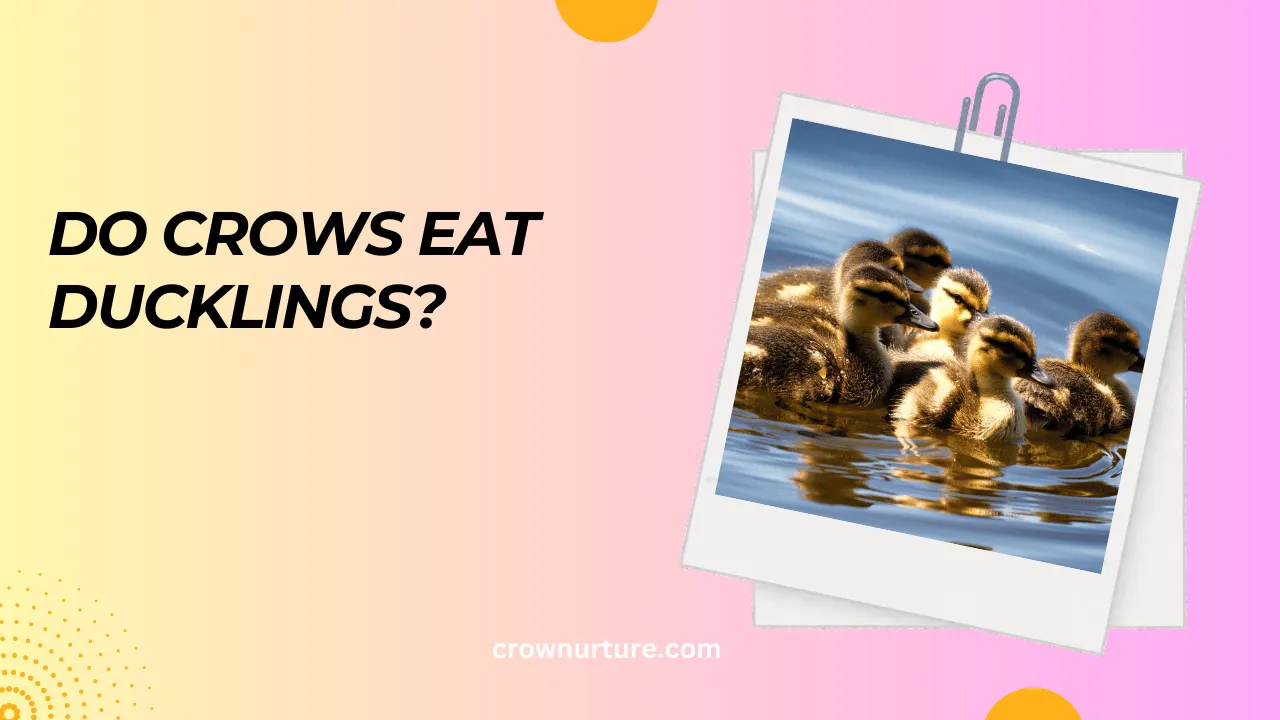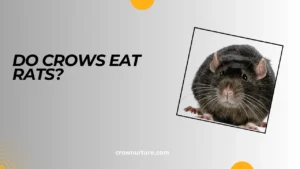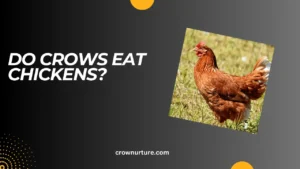Crows are often admired for their intelligence and resourcefulness, but their reputation among bird lovers is not always positive. Known for their opportunistic feeding habits, these birds will eat almost anything they can find, raising an unsettling question: Do crows eat ducklings?
For many people, ducklings represent the delicate beauty of nature, making the thought of them becoming prey quite disturbing. Yet, understanding this aspect of crow behavior is important—not just for bird enthusiasts, but also for anyone interested in the balance of ecosystems.
The interaction between predators like crows and vulnerable species like ducklings highlights the challenges wildlife face every day.
In this post, we’ll explore the feeding habits of crows, their potential to prey on ducklings, and the broader impact of this behavior. Whether you’re a duck lover trying to protect your flock or simply curious about the complexities of nature, this article will give you the insights you need.
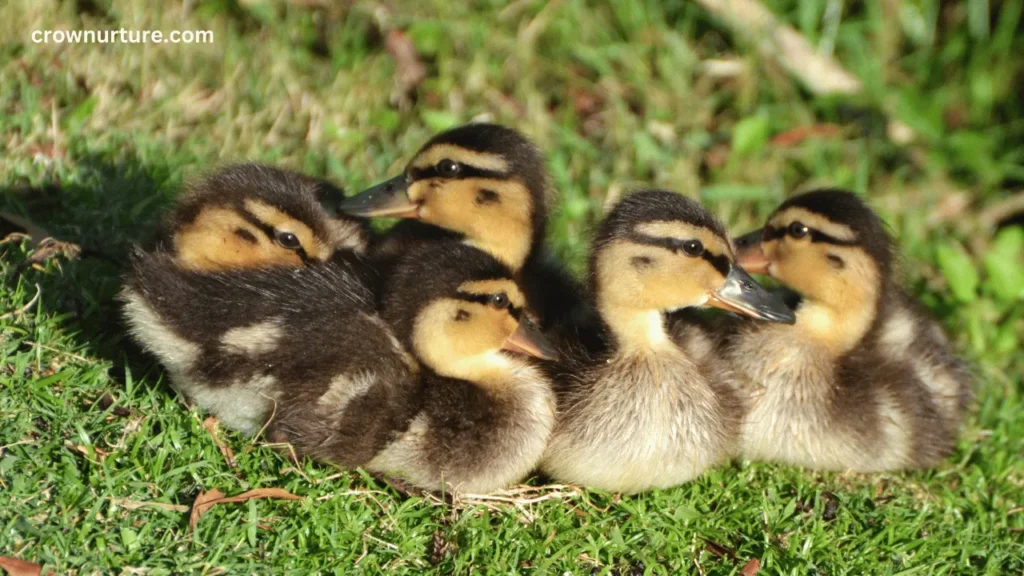
Contents
1. The Crow’s Diet: A Versatile Eater
Crows are omnivorous, meaning they eat both plant-based and animal-based food. Their diet includes insects, fruits, seeds, carrion, and even small animals, showing their remarkable adaptability to different environments.
What makes crows so versatile is their ability to exploit available resources. In urban areas, they scavenge through garbage, while in rural settings, they hunt insects or raid crops. This flexibility allows them to thrive in various habitats, from cities to forests.
Crows also demonstrate a keen sense of opportunism, eating whatever is easiest to find. This characteristic plays a role in their potential to prey on ducklings and other vulnerable animals.
2. Crow Predatory Behavior
Crows are opportunistic feeders, meaning they rarely pass up the chance for an easy meal. Their hunting methods are subtle but effective—they might ambush prey, scavenge carcasses, or even steal food from other animals.
When hunting live prey, crows rely on teamwork and intelligence. For instance, they may distract a parent bird while another crow raids a nest. This coordinated behavior makes them formidable predators in certain situations.
Factors like seasonal food availability and habitat conditions influence their predatory behavior. For instance, during breeding seasons, crows may actively hunt more to feed their young.
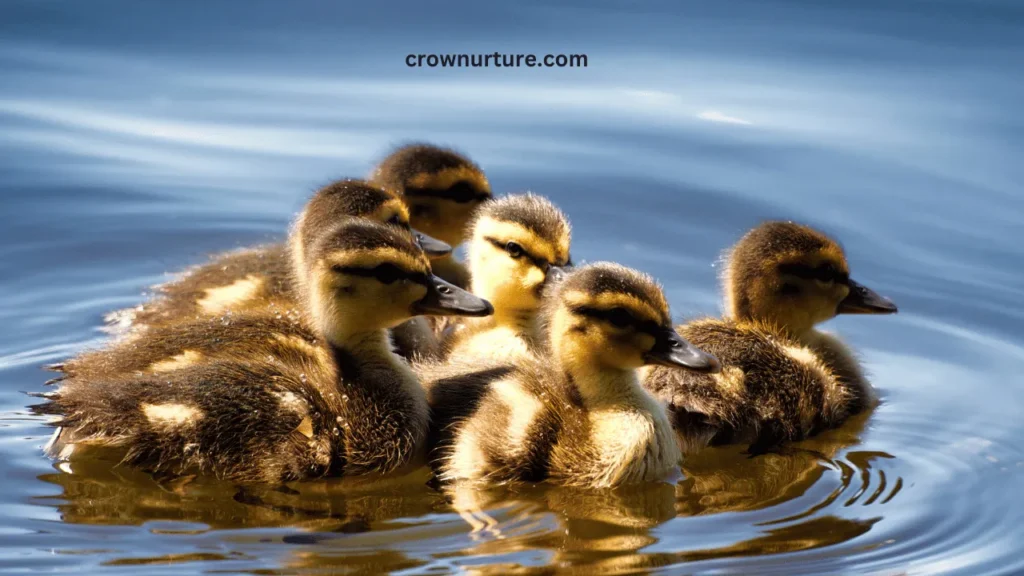
3. Crows and Ducklings: A Potential Threat
Ducklings are highly vulnerable due to their small size, slow movement, and limited ability to defend themselves. When crows spot a group of unprotected ducklings, they may seize the opportunity to attack.
There is evidence of crow predation on ducklings, with birdwatchers and researchers reporting such incidents in areas where crows are abundant. Duck nests are also at risk, as crows often steal eggs for food.
This predation can sometimes have a noticeable impact on local duck populations, particularly in urban areas where crow densities are higher and other predators are scarce.
4. Mitigating Crow Predation on Ducklings
To protect ducklings, many individuals and conservationists use predator deterrents, such as wire enclosures, reflective tape, or scarecrows. These measures can help create a safer environment for nesting ducks.
Habitat management is another effective strategy. For example, providing dense vegetation around nesting sites can make it harder for crows to access ducklings or their eggs.
It’s essential to find a balance between protecting ducks and preserving crows, as both species play important roles in their ecosystems. This balance can be achieved through thoughtful conservation efforts and responsible wildlife management.
5. Understanding Ecosystem Balance
Crows are often misunderstood predators, but their actions play a role in maintaining ecological balance. By preying on weak or unprotected individuals, they help regulate populations, which can prevent overpopulation and disease spread.
However, in environments where human activity has increased crow populations, their impact on species like ducks can become more pronounced. This highlights the need for understanding and managing human influence on ecosystems.
Ultimately, the relationship between crows and ducklings is a natural part of the food chain, even if it sometimes feels harsh to witness.
Conclusion
While crows are not exclusive predators of ducklings, they do pose a significant threat to these vulnerable young birds when the opportunity arises. Their intelligent and opportunistic nature enables them to exploit weaknesses in duckling protection, especially in environments where crows thrive.
By understanding the factors behind crow predation, we can take practical steps to protect ducklings while also appreciating the role crows play in the ecosystem. Balancing the needs of both species ensures that we promote biodiversity and harmony in nature.
As we continue to study and adapt our conservation efforts, we can learn to coexist with these clever birds while safeguarding the creatures they might threaten.
FAQs
1. Do crows eat ducklings?
Yes, crows are opportunistic predators and may eat ducklings if given the chance, especially when they are unprotected.
2. How do crows hunt ducklings?
Crows may ambush ducklings when they are separated from their parents or raid nests to steal eggs and young birds.
3. Are crows a major threat to ducks?
While crows can be a threat to ducklings, their impact depends on factors like crow density and habitat conditions.
4. How can I protect my ducklings from crows?
To protect ducklings, provide secure enclosures, dense vegetation, and deterrents like scarecrows or reflective tape.
5. Do crows eat adult ducks?
Rarely. Adult ducks are typically too large and strong for crows to prey on, but eggs and ducklings are more vulnerable.
6. Why do crows eat ducklings?
Crows are opportunistic feeders and will eat ducklings when food is scarce or when the opportunity arises

